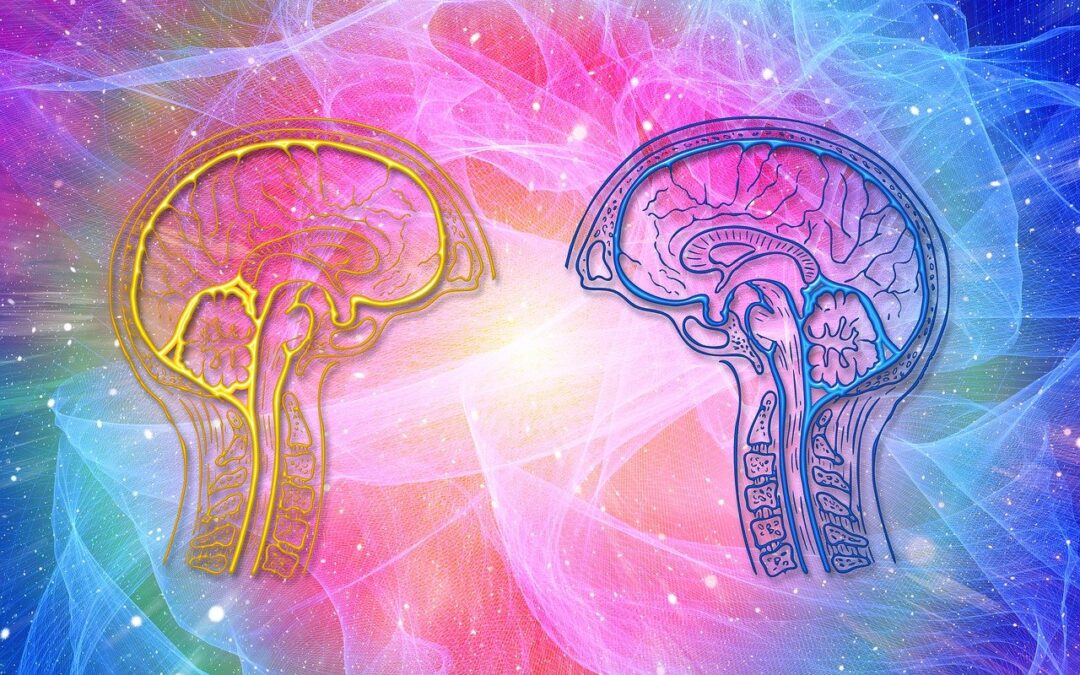Mental health cannot be viewed from just one vantage point. A myriad of factors works together to define the way we interact with the world, including biological, psychological, and social factors.
In this post, we will focus on biological and social determinants, indicating how each can contribute to diagnosable conditions like depression and anxiety. These mental issues affect one in four Americans.
Biological Factors that Determine Mental Health
Various biological factors determine the state of one’s mental health. One of these is physical health.
Genetics, the gut microbiome, inflammatory factors, stress and hypothalamic–pituitary–adrenal (HPA) axis dysfunction, and cognitive-related factors can all influence our risk of developing conditions like depression and anxiety.
This can be illustrated by focusing on the gut microbiome. The latter is the collection of gut bacteria that live within the human gut. These bacteria communicate directly and indirectly with the brain through the gut-microbiota-brain axis.
A disordered microbiome can lead to inflammation, which can then manifest itself in conditions like depression.
As a 2023 study review published in the journal Pharmaceuticals reports, having low levels of specific gut bacteria such as coproccocus is linked to depression.
In one study, rats who were exposed to matter from depressed human beings showed depressed behavior and were depleted of the gut bacteria, coproccocus.
[Related: The link between inflammation and depression]
Studies on Inflammation, Stress, and Cognitive Decline
Research has revealed that raised levels of inflammation are strongly linked to mental conditions like depression. For instance, pro-inflammatory cytokines (substances secreted by some immune system cells) are linked to depression.
Stress is also linked to the release of inflammatory substances, and chronic stress plays a role in the pathway leading to depression. What’s more, being exposed to stress early in life can lead to a hyperactive HPA axis, which creates a propensity toward poor adaptation to stress.
Being exposed to high-stress situations can also increase the likelihood of developing depression. For instance, the deployment of soldiers to regions of war leads to decreases in brain volume in specific parts of the brain.
Typically, armies aim to protect the mental health of soldiers via mental training, techniques such as visualization, and the use of red military tags to appease those with medical conditions.
However, the mere presence in zones of conflict has irremediable biological changes that can persist months after battles have ended.
Cognitive decline is also strongly linked to a heightened risk of mental health issues. Numerous studies have shown that cognitive impairment and deficits magnify the risk of poor mental health.
Social Factors
As mentioned, various social determinants can also influence mental health.
These include:
- sociodemographics,
- exposure to discrimination and social exclusion,
- adverse childhood experiences
- poor education
- underemployment/lack of employment/job insecurity
- neighborhood deprivation
- poor housing, poor access to nutritious food,
- harmful features in the built environment,
- lacking access to healthcare
All these factors can up the risk for both mental illnesses and substance abuse disorders while also affecting physiological health. Additional factors to take into account are:
- exposure to violence or conflict in one’s childhood or adulthood,
- poor relationships between communities and law enforcement and/or imprisonment,
- climate change,
- gender discrimination,
- lack of support in the workplace.
At the personal level, being exposed to one or more of these risk factors can lead to stress, risky behaviors, and poor lifestyle choices. It also leads to stress and well-established psychological and physiological stress responses.
As mentioned above, stress activates the hypothalamic-pituitary-adrenal axis. It also promotes inflammation, all of which increase the chances of developing mental illnesses.
The Link Between Biological and Societal Factors
There is, indeed, a well-established link between biological and societal determinants of mental health. For instance, a person’s chances of being exposed to toxins and pathogens increase if they live in deprived neighborhoods. It works the other way around too. Societal and environmental factors can impact genetic determinants.
The American Heart Association reports that societal factors such as poor education, a deprived neighborhood, job insecurity, and poor access to healthy food can all lead to accelerated biological aging (or epigenetic age acceleration).
Essentially, one’s lived experience alters the way genes work, and adverse societal factors can increase the risk of cardiovascular and other risks.
Human mental health is inexorably linked to various factors, including biological and societal ones. Biological issues such as inflammation and cognitive decline can pose a higher risk of various mental conditions such as depression. However, societal factors can up the likelihood of physiological and mental health issues alike. Studies also show that biological and societal factors are intricately linked, each posing a potential threat to the other.
Image by Gerd Altmann from Pixabay


